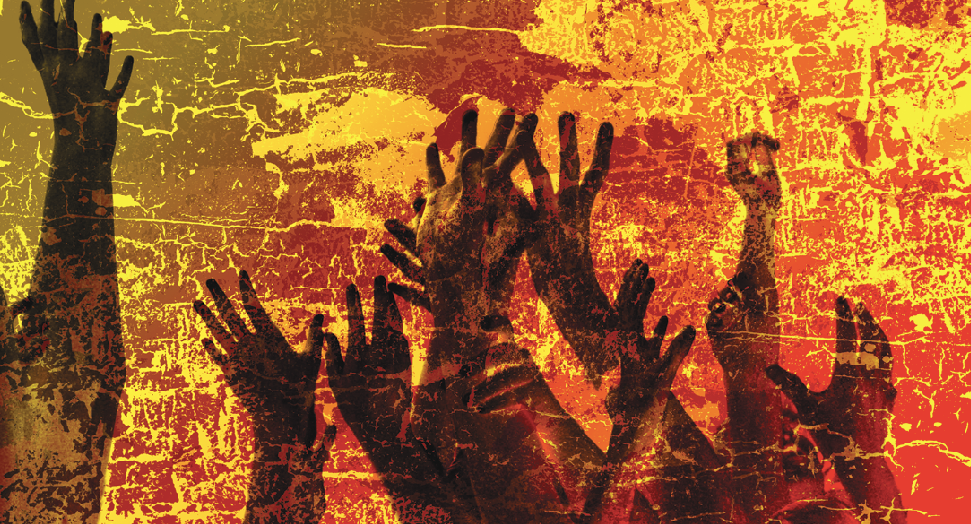By Christy Barritt
Belief in Hell Deters Criminals
A new study by a University of Oregon psychologist found that believing in Heaven and Hell has a direct correlation to crime rates. Essentially, the study showed that belief in a punitive God means less crime while a belief in a forgiving God means more crime.
The study was published in the Public Library of Science journal PLoS ONE, and took a sample survey from 143,197 people in 67 countries over a span of 26 years.
“I think it’s an important clue about the differential effects of supernatural punishment and supernatural benevolence. The finding is consistent with controlled research we’ve done in the lab, but here shows a powerful ‘real world’ effect on something that really affects people—crime,” Azim F. Shariff, a professor at the University of Oregon, said in an interview with news channel KVAL-TV.
The findings of the study, according to Shariff, show that positive supernatural belief systems are a reliable means by which to evoke ethical behavior from people.
Growing “God Gap” Between Republicans and Democrats
A new Values Survey from the Pew Research Center shows evidence of a growing religious divide right along party lines.
The results showed that people who attend religious services frequently are more likely to vote Republican while those who attend religious services less frequently are more likely to vote Democrat. This split is often called the “God gap.”
Whereas Republicans and Democrats used to be nearly identical in their belief in the existence of God, Democrats have seen a steady decline over the past decade, dropping 11 percentage points to only 77 percent in 2012. Ninety-two percent of Republicans in 2012 said they never doubt the existence of God, which is about the same as it was in 1987.
Millennials Less Interested in Religion
Focus on the Family recently examined ongoing research on Millennials through its Family Formation Studies program.
Millennials are commonly known as the group of people following Generation X or, in other words, those born between 1980-2000.
The research showed some interesting findings, including the fact that Millennials are more likely to be living with other family members, such as parents or siblings, than the previous two generations. Millennials are also more likely to cohabitate with a strong desire to marry, and to be more financially unstable.
On religion, only 43 percent of Millennials are likely to say a “religious life” is important to them, which will present interesting challenges for churches when reaching their generation.
Police Chaplains Banned From Praying in Jesus’ Name at Public Events
Chaplains in one North Carolina police department can no longer use Jesus’ name while praying at public events.
Major John Diggs of the Charlotte-Mecklenburg Police Department oversees the volunteer chaplain program, and he said that this change was brought about in order to
respect people of all faiths.
The police department employs approximately 2,000 people from a variety of religious backgrounds. They currently have seven chaplains in the department, all of whom are Christian. This new measure of banning the use of Jesus name would apply to various ceremonies held for the police department such as promotions and memorials.
Some chaplains have asked to be excused from participation in these events if they can’t mention Jesus.
 Christy Barritt is an award-winning author, freelance writer, and speaker living in Chesapeake, Virginia. She and her husband Scott have two sons.
Christy Barritt is an award-winning author, freelance writer, and speaker living in Chesapeake, Virginia. She and her husband Scott have two sons.
www.christybarritt.com



Comments: no replies